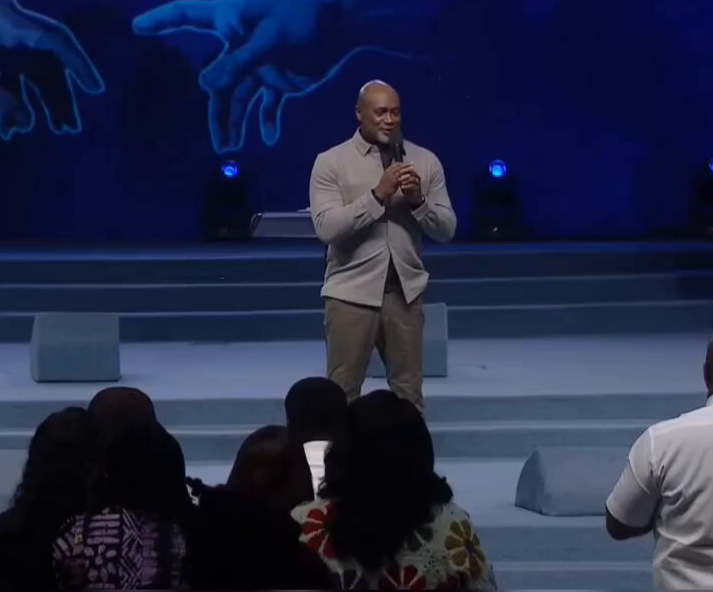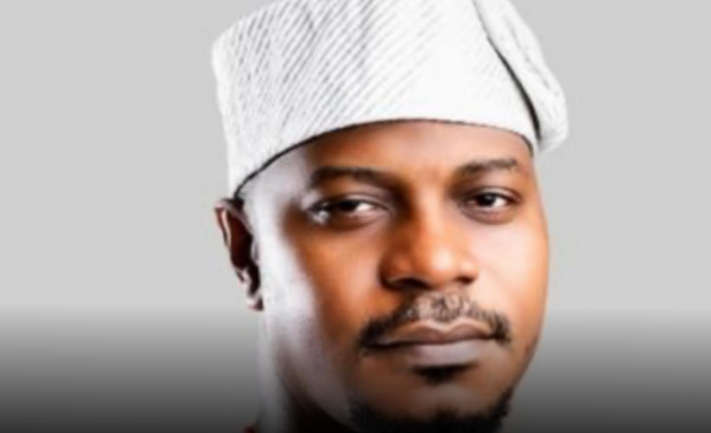

Pastor Paul Adefarasin has ignited a nationwide debate after delivering one of his most forceful and politically charged sermons yet, declaring that while he prays Nigeria never finds itself in a war, he is personally prepared if the country is ever forced into such a confrontation. His statement—“I certainly hope Nigeria will never have to go to war but if it comes to that, I am ready for it”—rang across the congregation like a siren, instantly becoming one of the most discussed comments in religious and political circles.
The respected cleric, known for his calm, statesmanlike messaging, took an unusually assertive stance this time as he addressed what he called the “rising and undeniable threats” confronting Nigeria. In a tone that blended frustration, warning, and patriotic duty, the pastor spoke about the nation’s escalating insecurity, the expansion of extremist networks across Africa, and Nigeria’s growing vulnerability in the face of global conflicts spilling into the continent. His message was clear: peace is the goal, but preparedness is a responsibility no nation can afford to ignore.
Adefarasin emphasized that his remarks were not a call to arms, nor a prediction of imminent war, but a realistic assessment of Nigeria’s position in an increasingly unstable world. According to him, terr0rism in Nigeria does not exist in isolation but forms part of a broader, well-coordinated international struggle, using Africa—especially Nigeria—as a strategic battleground. He warned that global extremist organizations are deepening their presence across the Sahel and pushing further south, emboldened by weak borders, political instability, and the economic desperation that fuels recruitment.
The pastor did not mince words in describing Nigeria’s current state. He lamented that the nation is dangerously underprepared for the scale of the threats forming around it. In his view, diplomatic engagement is essential but insufficient without strong internal fortification. Nations that rely solely on negotiation, he warned, are often consumed by those who rely on force. Adefarasin argued that Nigeria needs a balance of diplomacy, intelligence, strategy, and strength—components that work together to build a robust national defense capable of neutralizing any force working against its stability.
One of the most striking parts of his sermon was the emphasis on a silent war taking place in the Middle Belt and Northeast, where he said indigenous communities are being displaced in what he described as a “coordinated and well-funded operation.” He noted that these attackers do not act independently but are tied to powerful networks—regional and international—who benefit from unlawful resource extraction, ranging from minerals to farmland. His claims echo long-standing grievances from communities who believe they are victims of strategic demographic and territorial campaigns.
Adefarasin insisted that Nigeria must stop treating each attack as an isolated incident and instead recognize the pattern of a larger agenda. He criticized the tendency of political leaders to downplay or oversimplify security challenges, arguing that such complacency only emboldens dangerous actors. According to him, recognizing the sophistication of these threats is the first step toward defeating them.
In an impassioned call to action, the pastor urged the country to mobilize its brightest minds—its thinkers, policymakers, innovators, intellectuals, and strategists—regardless of tribe, faith, or political affiliation. He stressed that Nigeria’s strength lies in its diversity, and only a unified national plan, crafted by its most capable citizens, can prevent the country from being swept into a conflict it is not ready for. Without unity and strategic foresight, he warned, Nigeria may face a future where external forces determine its fate.
Adefarasin also turned his attention to the millions of Nigerians living abroad. He acknowledged the painful reality that many fled the country because it no longer offered them security, opportunities, or stability. Yet, he noted, the diaspora still holds onto hope—hope that one day Nigeria will rise from its troubled state and become a nation they can proudly return to. He described the diaspora as a reservoir of knowledge, skill, and influence that Nigeria must never underestimate. But for them to return and rebuild, the homeland must first be secure.
Throughout his message, the pastor returned repeatedly to the theme of vigilance. He warned against internal saboteurs—individuals and groups who benefit from chaos, corruption, and national weakness. He said that Nigeria must identify and isolate such elements before they undermine the nation from within. According to him, no external threat can destroy Nigeria if internal unity is strong, but even the smallest internal crack can invite catastrophe.
In concluding his sermon, Adefarasin prayed fervently that Nigeria finds the right allies at the right time, builds a strong and honest leadership, and avoids falling into the traps set by global power players seeking control over the nation’s resources and strategic positioning. He reiterated his hope that Nigeria will never go to war, but his readiness if duty ever demands it underscored how grave he believes the moment is.
His bold words have sparked mixed reactions. Supporters praise his courage for speaking plainly about threats many prefer to avoid. Critics argue that such rhetoric from a religious leader may heighten anxiety in an already tense population. Yet even among critics, there is acknowledgment that Nigeria’s security challenges are escalating and can no longer be treated with superficial solutions.
What is undeniable is that Pastor Adefarasin’s warning has pierced the national conscience. His message, though alarming, reflects a sentiment increasingly shared by ordinary Nigerians—fear that the country is drifting without clear direction, frustration at leadership failures, and deep concern that external forces are exploiting internal weaknesses.
Whether his sermon becomes a turning point or simply another moment of national debate will depend on how Nigeria’s leaders and citizens respond. But for now, his declaration stands as a stark reminder that the country is at a crossroads, and the cost of complacency may be far greater than many are willing to imagine.
"I certainly hope that Nigeria doesn’t have to go to w@r but I am ready for it"
— CHUKS 🍥 (@ChuksEricE) November 23, 2025
-Pastor Paul Adefarasin speaks on the wave of insecurity and US plan to intervene. pic.twitter.com/nUvukiTaQe


